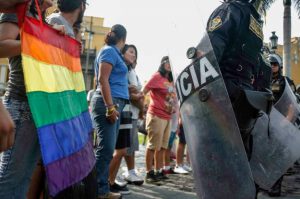
Peru’s LGBT Community Frustrated By Violence, Presidential Election
With less than six weeks to go before Peru’s presidential election, gay rights activists are fighting to put LGBT inclusion on the national agenda and find a candidate to rally behind. It isn’t easy, says Carlos Polo in Lima. Over Valentine’s Day weekend, Polo was beaten by police while kissing his boyfriend during a small … Read more
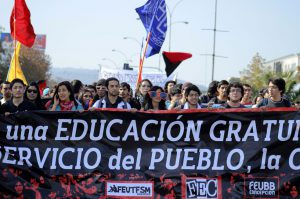
Free College in Chile! So What Are Students So Mad About?
On Tuesday, 80,000 university students in Chile received the good news that they were eligible for tuition-free education as part of a new program enacted by President Michelle Bachelet. The moment should have been a high point for the country’s vocal – and powerful – student movement, which for years has been protesting for better … Read more
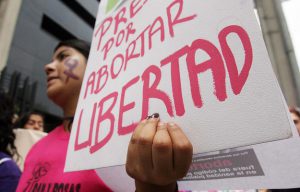
In Latin America, Abortion Rights Stall as LGBT Rights Advance. Why?
Last month, thousands of people in cities across Brazil took to the streets to protest a bill that, among other things, would make it more difficult for rape victims to obtain abortions. In Rio de Janeiro, those protestors gathered just blocks away from the state’s justice tribunal where, less than two years before, more than … Read more
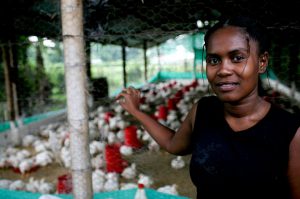
Greater Women’s Equality in Latin America Would Unlock $1 Trillion
Women have won five presidential elections in Latin America – an impressive feat. Yet much more still needs to be done to advance women’s equality in the region. The economic benefits alone would be huge – by our calculations more than $1 trillion over the next decade. At a time when many Latin American economies … Read more

Rethinking Poverty in the Amazon
María Teresa Quispe is keenly aware of her status as an outsider in the Amazon. Born in London to Peruvian parents, Quispe grew up in Lima, Caracas and Buenos Aires, and initially focused her career on addressing poverty among urban populations. But a chance trip to the Venezuelan Amazon as part of an Inter-American Development … Read more
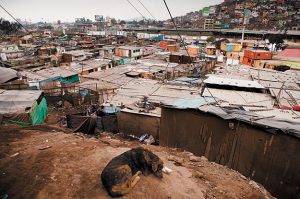
Indigenous Residents of Lima’s Cantagallo Shantytown Confront an Uncertain Future
The pueblo joven, or shantytown, of Cantagallo sits atop a former landfill in Lima, wedged between a freeway and the Rímac River. Founded in 2000 by roughly 15 indigenous Shipibo families who were part of a mass exodus of Amazonian immigrants pushed out of their communities by logging, illegal mining and infrastructure development in the … Read more
Dr. Douglas Rodrigues on Protecting the Amazon’s Remaining Isolated Peoples
This article is adapted from the Fall 2015 print edition of Americas Quarterly. To subscribe, please click here I have worked as a doctor and researcher with indigenous communities in central Brazil’s Xingu National Park since 1981, and I have witnessed how contact with vulnerable, isolated groups results in high rates of violence, disease and … Read more
Stephen Corry on Protecting the Amazon’s Remaining Isolated Peoples
The only way to protect uncontacted tribal peoples is to ensure their lands are properly secured. If their territories are not invaded and stolen, they have a good chance of survival; when their lands are taken, they are unlikely to survive at all. There are many examples where territories have been protected, and Survival International … Read more
Mark J. Plotkin on Protecting the Amazon’s Remaining Isolated Peoples
The U.S. writer H.L. Mencken famously remarked, “There is always a well-known solution to every human problem — neat, plausible and wrong.” The question of how to protect the Amazon’s isolated tribes — which encompasses such difficult issues as human rights, rain forest conservation, preservation of cultural integrity, sustainable development, national sovereignty and addressing threats … Read more
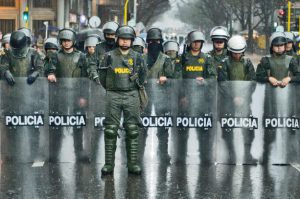
La pobreza en Latinoamérica esta bajando, pero la violencia sube. ¿Por qué?
Versão em portuguêsRead in English Con la pobreza en América Latina y el Caribe en sus niveles más bajos en décadas, ¿por qué la violencia está disparada? Aunque algunos países están peor que los demás, la región cuenta con las tasas de homicidios más altas del mundo. Esta relación es desconcertante y contradictoria. Los investigaores … Read more
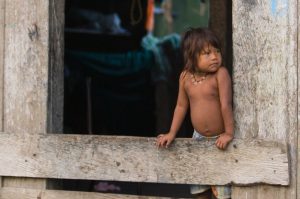
Colombia’s Next Challenge? A Psychologically Traumatized Society
Following a breakthrough in negotiations with FARC guerillas on Wednesday, President Juan Manuel Santos suggested that peace in Colombia was closer than ever. But even if a deal is signed, the task of coming to terms with the psychological effects of the decades-long conflict will remain. Colombian economist Andrés Moya is studying what that might … Read more
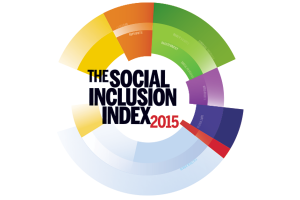
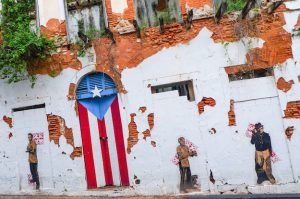
Puerto Rico’s Debt Debate Overlooks Human Costs
Imagine that you only have access to running water every three days. That’s not so bad, given the government’s plans in response to an extreme summer drought to shut down tap water completely for up to four days at a time. To add insult to injury, imagine you still have to pay for the tap water … Read more
In Ecuador, Broken Promises and Calls for an “Indigenous Uprising”
August 9 marks the International Day of the World’s Indigenous Peoples. In Ecuador, hundreds will mark the day in protest, as a march convened by CONAIE, the country’s chief Indigenous organization, is making its way to Quito from the far southwestern corner of the country. CONAIE, or the Confederation of Indigenous Nationalities of Ecuador, has … Read more
Jamaica’s Pride Week Is A Positive Step for the Caribbean
Correction appended below On Saturday, LGBT rights organizations kicked off PRiDE JA 2015, Jamaica’s first ever gay pride week. For a country that TIME magazine once called “the most homophobic place on earth,” the event is testament to a slowly improving climate for an often persecuted LGBT community. “Despite the realities, Jamaica is changing slowly … Read more


